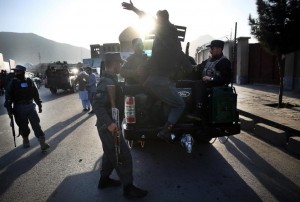Latest News
Taliban dissident pledges allegiance to leader
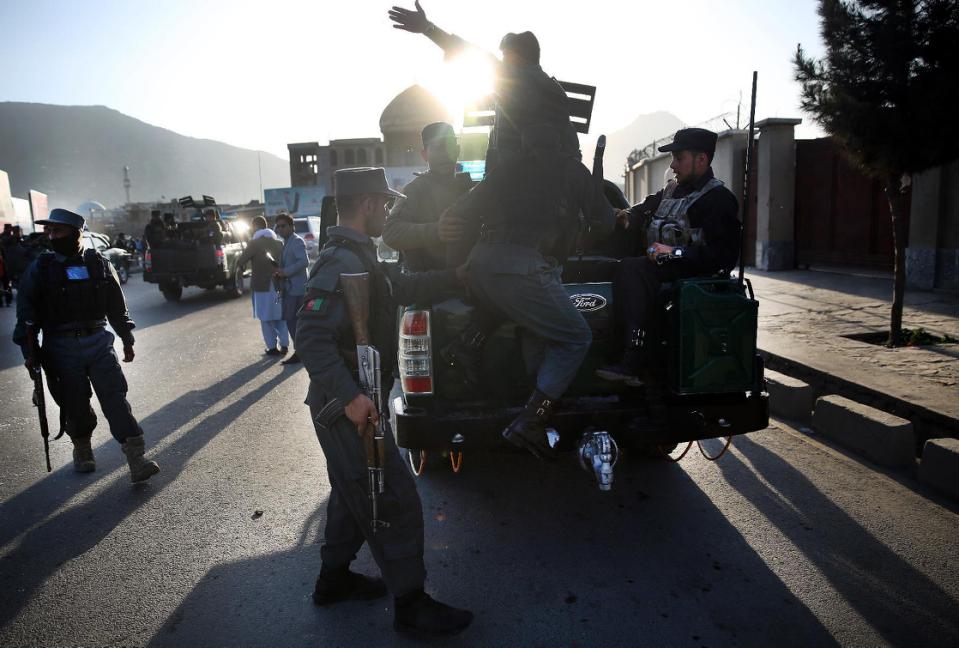
Senior members of the Afghan Taliban said on Thursday that a prominent figure within the militant group who had opposed its new leadership has now pledged his allegiance, helping to close divisions within the Taliban ahead of possible peace talks with the government.
Abdul Qayum Zakir had disagreed with the appointment of Mullah Akhtar Mansoor as leader of the Taliban following the death of the movement’s one-eyed founder, Mullah Mohammad Omar.
Two Taliban members — Mohammad Ghaus, a foreign minister in the Taliban’s 1996-2001 regime, and ruling council member Mullah Gul Rahman Saleem — told The Associated Press that Zakir had recently pledged allegiance to Mansoor.
His loyalty pledge helps close one of several rifts that emerged after Mullah Omar’s death was announced by the Afghan government last summer.
Mansoor had led the movement in Omar’s name for more than two years after he died. Kabul’s announcement of Omar’s death elevated Mansoor to the leadership, but led to deep mistrust among some at the top of the insurgent movement who felt betrayed.
The announcement of Omar’s death also derailed a peace process that has yet to be revived. The Taliban recently announced they would not attend direct talks with Afghan government representatives, which Kabul officials had said would take place in early March.
Zakir’s return to the fold follows a rallying call issued by Mansoor earlier this month, in which he called on disaffected Taliban to reunite under his leadership. This appears to be an attempt to strengthen his position ahead of any peace dialogue, consolidating battlefield gains made after the international combat mission ended in 2014 and left Afghan forces to fight largely alone for the first time in the war’s 15 years.
Zakir, a former Taliban military commission leader who spent time in Guantanamo Bay prison after the 2001 U.S. invasion toppled the Taliban regime, held a number of senior roles within the group, both during its rule of Afghanistan and after it went into exile in neighboring Pakistan. He had initially opposed Mansoor’s elevation to leader, but chose to keep a low profile.
His power base is in southern Helmand province, where most of the world’s opium is produced, and where Mansoor is believed to control the bulk of the smuggling routes.
Another dissident, Mullah Mohammad Rasool — known to be close to Zakir — established his own militia in western Afghanistan, where he fought Mansoor’s men. Reports circulated in the Pakistani media early this month that he had been lured back to Pakistan and arrested by authorities there. Islamabad has not confirmed the reports.

Latest News
Pakistan is using its territory against Afghanistan: MoD
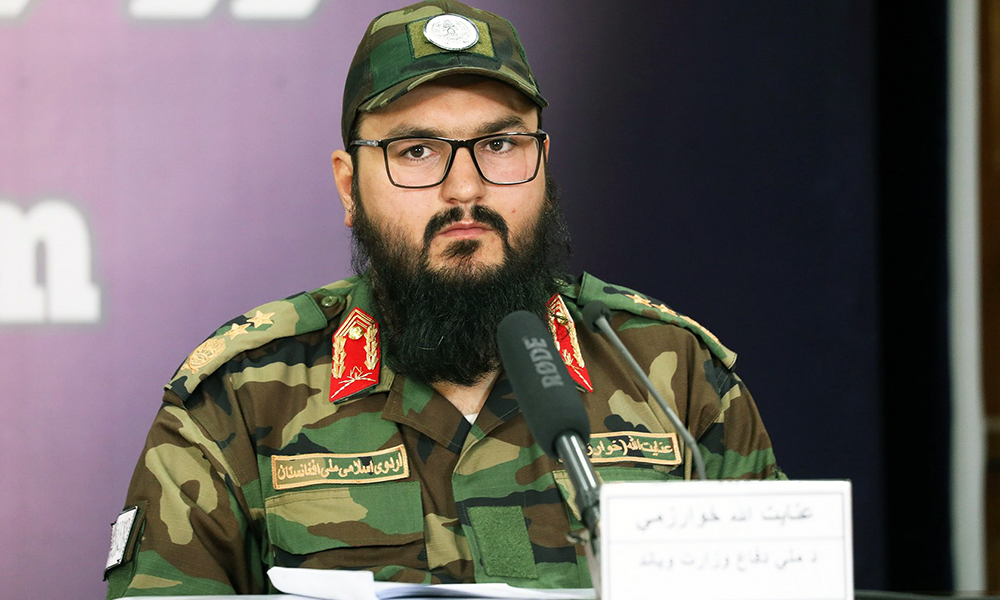
The Ministry of National Defense of Afghanistan (MoD) has strongly rejected Pakistan’s claim that the recent attack on Chinese nationals in Pakistan was planned from the territory of Afghanistan.
Late last month five Chinese nationals and one Pakistani were killed in a suicide bombing near Besham, in Pakistan’s Khyber Pakhtunkhwa.
A spokesman for the Ministry of Defense, Inayatullah Khwarazmi, said that Daesh came from Pakistan to the territory of Afghanistan and its goals were organized from there.
He said that Pakistan should respond to these actions.
Khwarazmi, said that in an area of Khyber Pakhtunkhwa, which is under the security of the Pakistan Army, the killing of Chinese nationals is either the weakness of the security institutions or their cooperation with the attackers.
Khwarazmi says that the Islamic Emirate has assured China that Afghans are not involved in such incidents.
The territorial tensions between Pakistan and Afghanistan are on the rise again. In the latest issue, Islamabad has accused Kabul of harboring terrorist networks.
Pakistan’s intelligence service has claimed that the Besham attack was planned in Afghanistan.
Latest News
Pakistan’s army claims TTP is using Afghan soil

Pakistan’s military spokesperson Ahmed Sharif Chaudhry claimed on Tuesday that there is “irrefutable evidence” of Tehreek-e-Taliban Pakistan (TTP) using Afghanistan against the country.
“There is irrefutable evidence of Afghan soil being used by the TTP […] recent terrorist incidents can be traced back to Afghanistan,” Sharif said while addressing a press conference.
Reaffirming the commitment on counter-terrorism efforts, Chaudhry said that Pakistan will leave no stone unturned to eliminate the terrorist network.
He stressed that the security forces would go to any extent possible against terrorists. However, the spokesperson noted that the first priority of the Pakistan Army was to maintain law and order in the country.
“The army chief has said that there’s no place for terrorists in Pakistan,” the spokesperson said while reassuring that steps are being taken to bring the miscreants to justice.
On the issue of Afghan refugees living inside Pakistan, he said: “Millions of Afghans are still living in Pakistan, while the country is fighting against terrorism. Pakistan has helped Afghan refugees, which the world has recognised.”
Highlighting that millions of Afghan citizens continue to reside in Pakistan, he revealed that more than 563,000 Afghans have been repatriated.
He said the law and order situation was deteriorating because of the Afghan citizens.
“Militants are spoiling the law and order situation in Balochistan, but the army is [acting as] a wall against the miscreants,” he noted.
The Islamic Emirate has previously denied the presence of TTP in Afghanistan and said that Pakistan’s security problem has nothing to do with Afghanistan.
Latest News
IEA’s supreme leader happy with ‘obedient’ ministers
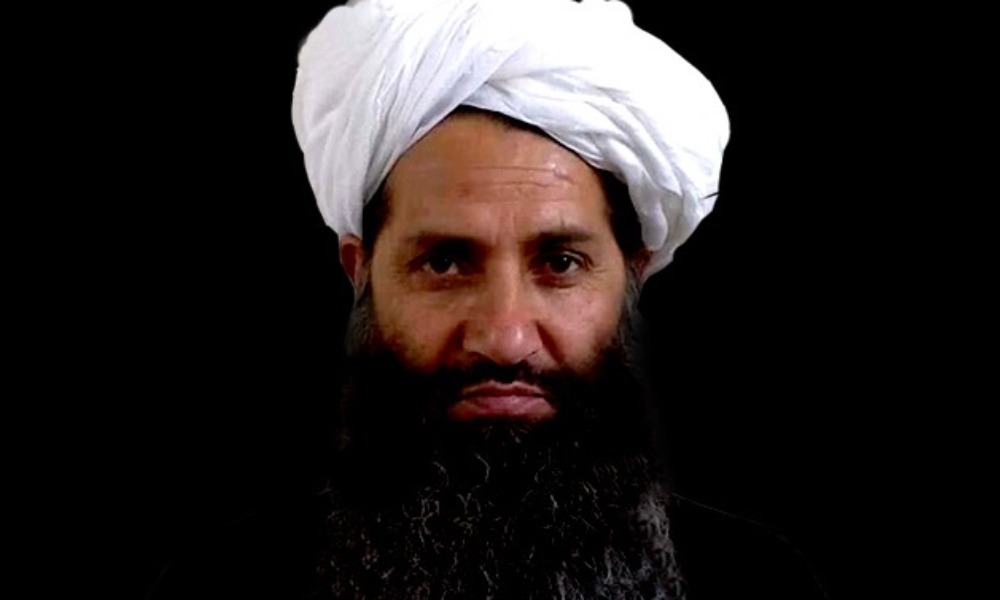
The Islamic Emirate of Afghanistan’s Supreme Leader Hibatullah Akhundzada said on the last day of a three-day seminar on the coordination and regulation of specialist and religious universities in Kandahar that after the establishment of the Islamic Emirate, all the opponents were forgiven and they now live together like brothers.
Speaking at the seminar Monday, Akhundzada added that he is satisfied with the performance of his acting ministers as they always obey him.
“I am happy with my ministers and they are good people and always obey me. Obey, value and honor them because honor and obedience are not exclusive to the Amir [leader], but include all the commanders,” Akhundzada said.
He also said that the world wants to separate politics from religion, so that even in Islamic countries, scholars do not have a role in politics; but according to him in Afghanistan, scholars should have access to politics.
He asked scholars to follow the orders of the Islamic Emirate to encourage the nation to implement and obey the orders.
Ziaullah Hashimi, the spokesman of the Ministry of Higher Education, says that the three-day seminar brought together department heads, deputies and professors of the General Directorate of Specialist and Religious Universities of the Ministry of Higher Education.
The seminar started on Saturday and ended Monday.
-

 Science & Technology5 days ago
Science & Technology5 days agoChina launches historic mission to retrieve samples from far side of the moon
-

 Sport5 days ago
Sport5 days agoAino Mina and Khorasan secure 2-1 wins in Friday’s ACL matches
-

 Sport3 days ago
Sport3 days agoDu Plessis, Kohli help Bengaluru stay in IPL play-off race
-

 Latest News4 days ago
Latest News4 days agoTrans-Afghan railway project expected to be completed by end of 2027: Uzbek official
-

 World4 days ago
World4 days agoHamas, CIA director to hold talks in Cairo on Gaza truce
-

 Latest News5 days ago
Latest News5 days agoAWCC launches telecom services in Kunar’s Noor Gul district
-
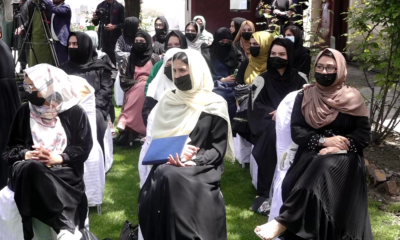
 Latest News5 days ago
Latest News5 days agoAfghan journalists ‘must be celebrated, supported and protected’: UNAMA
-

 Latest News3 days ago
Latest News3 days agoBan on opium cultivation in Afghanistan cost farmers $1.3 billion

